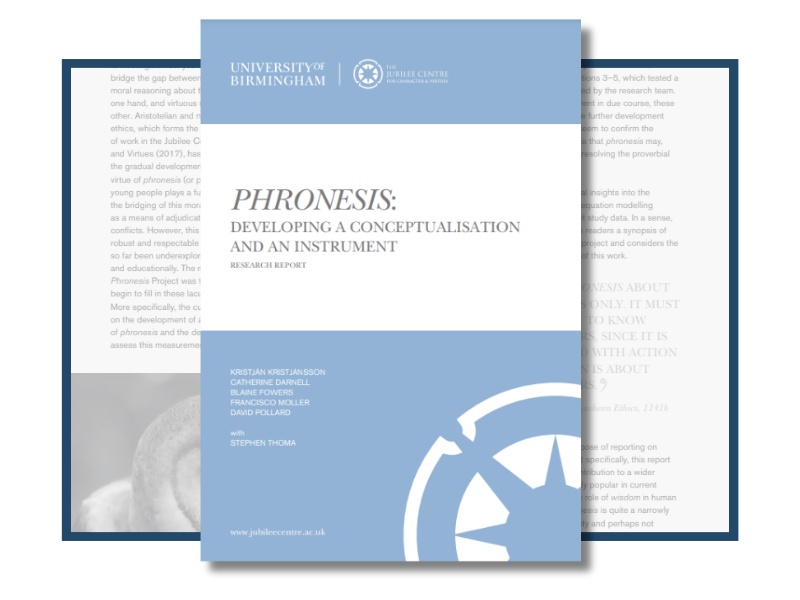According to Aristotelian character developmental theory, young people who have acquired the right moral traits through habituation and role modelling need gradually to develop the intellectual virtue of phronesis, or practical wisdom, to guide their decision making; otherwise, their moral life will be fragmented, uncritical and lacking in intrinsic value. The upsurge of interest in neo-Aristotelian forms of character education have thus led to a renewed interest in understanding the workings of phronesis.

This report is the result of research motivated, firstly, by the hypothesis that Aristotle may have been on the right track in suggesting that phronesis bridges the gap between moral knowledge and action in duly developed moral agents (typically referred to in contemporary moral psychology as the ‘gappiness problem’). No one to date has, however, explored this hypothesis empirically. Secondly, therefore, it is incumbent upon Aristotle-inspired psychologists and educationists to take on the task of designing an instrument that measures phronesis and its development, as well as to test the aforementioned hypothesis by seeing how well phronesis predicts moral behaviour and how it fares vis-à-vis other candidates. Such instrument design requires the preliminary conceptual work of operationalising the construct of phronesis.
